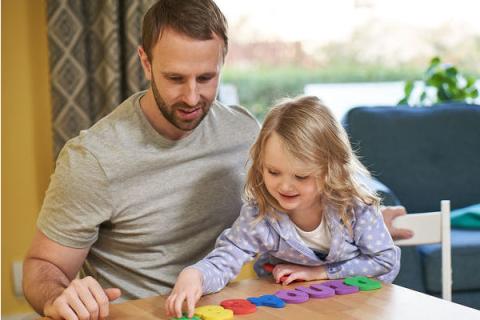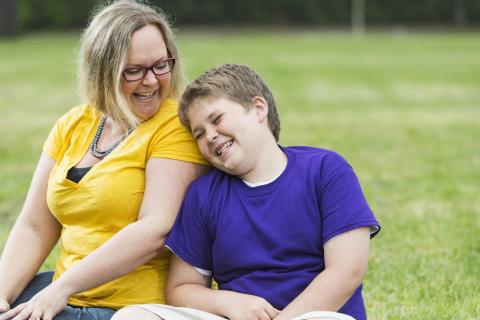Being a parent isn’t easy. There are so many different things to juggle, from trying to get them to eat healthily to making sure they get to school on time, getting yourself to work, keeping everyone clean and trying to get them to bed b a reasonable time – not to mention food shopping and that great big pile of washing... So while of course we all want to have a solid, trusting, loving relationship with our children, sometimes the business of getting through the day gets in the way.
How to build a good relationship with your child
There’s no magic wand you can wave to build a good relationship with your child and encourage them to confide in you, but little day-to-day actions add up. And taking time to talk to your child and really listen to what they have to say is so worth it. In the short term it can help them behave better – making all that day to day stuff a little easier – and over time it will help them grow up into happy, confident young people and adults.
Our page on building a rewarding relationship with your child has tips for wee ones while our section on building a good relationship with your teen has advice for older children. Here are some tips to help when your child is around 4-12.
These tips aren’t just for parents – aunts and uncles, grandparents and friends are all important for making a child feel safe and loved too.
Tips for building a good relationship with your child
Tip #1: Give them as much attention as you can
We’ve all done it – they start telling us the plot of their favourite book or telly programme or talking us through a computer game in minute detail and we can’t help it, we tune them out. But children need our attention to help them develop, and to feel safe and valued. So next time they launch into a story, put your phone away and give them your full attention. Show them you’re listening by commenting on what they say and asking questions. If they know you listen when they’re talking about day-to-day things, they’ll be more likely to talk to you about more important matters.
Tip #2: Set aside time to talk
If you can, make time to do something together that also gives you the opportunity to talk. For example, you could feed the ducks in the park, try gardening, cooking or baking, or spend time playing together. If they know they can get your attention at these times, they’re less likely to act up and more likely to talk to you about anything that’s upsetting them.
Tip #3: Praise them and be positive
Hearing kind, loving words helps children feel safe and valued, so make sure you praise them regularly and let them know you love them. It can feel a bit unnatural at first, but try and praise them for what they do rather than what they are. For example, rather than saying they’re clever, say how proud you are that they’ve worked hard.
Likewise, if you need to tell them off, explain that it’s the behaviour that you’re not happy with, not them. For example, if they won’t get up in the morning, don’t call them lazy, instead explain that they have to get up because otherwise you’ll be late for school. If they do something they know they shouldn’t, don’t label them as naughty but explain why their behaviour upsets you.
Tip #4: Be honest
Try not to make promises you can’t keep, or threats you won’t carry out. If your child knows you mean what you say, they’ll be more likely to trust you and less likely to argue.
Tip #5: Be as predictable and reliable as you can
Nobody can be 100% consistent – unless they’re a robot! And sometimes bending the rules can be fun on special occasions. But on the whole, try to be as predictable as you can in your daily routine and how you set boundaries. This will help them feel more secure and confident.
 Activities & Play
Activities & Play Behaviour
Behaviour Childcare
Childcare Development & Growing Up
Development & Growing Up Family, Friends & Relationships
Family, Friends & Relationships Feeding Your Baby
Feeding Your Baby Food & Eating
Food & Eating Health & Safety
Health & Safety Mental Health & Wellbeing
Mental Health & Wellbeing Money & Work
Money & Work Online Behaviour & Safety
Online Behaviour & Safety Pregnancy & First Days
Pregnancy & First Days School & Education
School & Education Sleep
Sleep













 Mental Health & Wellbeing
Mental Health & Wellbeing
 School & Education
School & Education